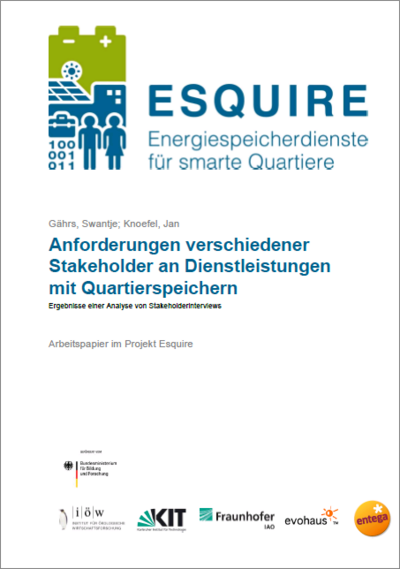Different stakeholders' demands for services provided by community energy storage Results of an analysis based on stakeholder interviews
In the course of the project Esquire, we investigate how Community Energy Storage (CES) can yield advantages for costumers and simultaneously serve the system.
With this in mind, we conducted interviews with stakeholders from the areas of grid operators, energy providers, storage system producers, municipalities and politics who presented their requirements on and idea of CES, all having very different views on the subject.
In 17 interviews by telephone, we discussed first evaluations of CES and their possibilities, the regulatory framework and funding, participation, acceptance and data security. Because of the project’s focus, we specifically considered possible services and business models. The actors often mentioned the complicated and discriminatory regulatory framework that so far represent great obstacles to the introduction and multiple use of CES and impede an open approach to new technology. Nevertheless, the actors mostly agree that CES are able to generate big technical and energetic advantages if many services can work together, ensuring an efficient usage. Ideas for different CES services spanned from grid and ancillary services to services focused on the market and the costumer to those that concern the areas of operation, maintenance and consulting. However, it was more difficult to define suitable business models due to the uncertainty in the area of the regulatory framework and the wide range of possibilities. Anyway, in every new case it should be checked if the application of a CES system makes sense. Overall, the experienced actors in the field show a positive basic attitude towards CES which indicates a potential for widespread use.



